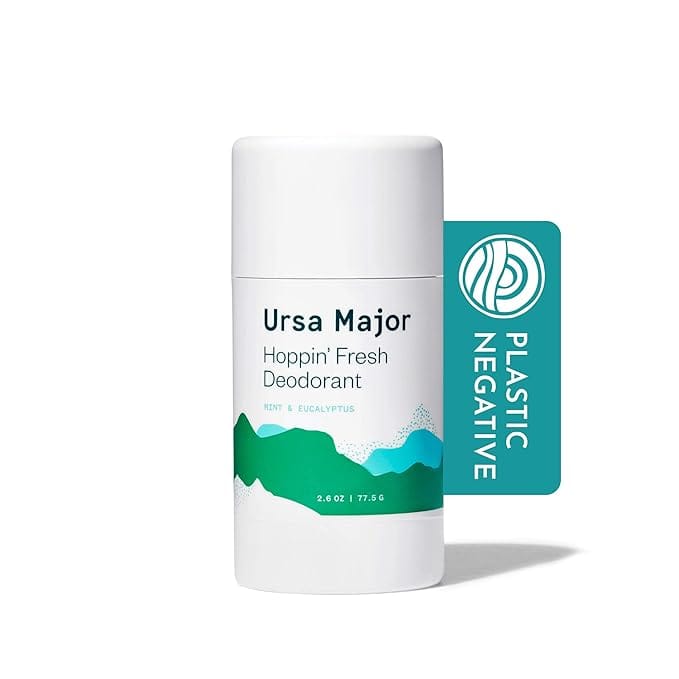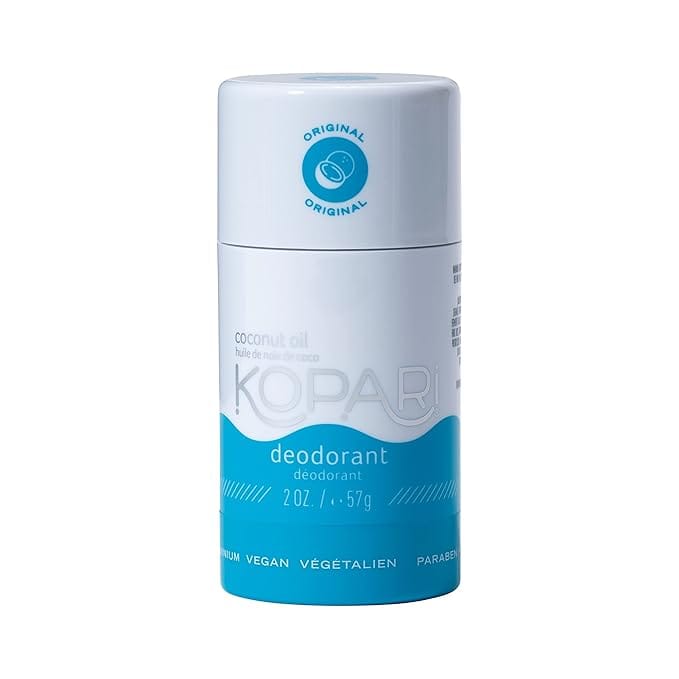Natural deodorants have surged in popularity as more people seek aluminum-free alternatives to traditional antiperspirants. But do these plant-based formulas actually work to combat body odor and wetness? This article examines the science behind natural deodorants and reviews some of the top options for both men and women.
Key takeaways:
• Natural deodorants use ingredients like baking soda and essential oils to neutralize odor
• They don't block sweat glands like antiperspirants do
• An adjustment period of 2-4 weeks is common when switching to natural deodorants
• Some people experience skin irritation from baking soda formulas
• Effectiveness varies widely between brands and individuals
How natural deodorants work
Unlike antiperspirants that use aluminum compounds to block sweat glands, natural deodorants aim to neutralize odor-causing bacteria and absorb moisture. Common active ingredients include:
• Baking soda - Neutralizes odor by altering skin pH
• Arrowroot powder - Absorbs moisture
• Essential oils - Provide fragrance and some antibacterial properties
• Coconut oil - Has antimicrobial effects
"Natural deodorants don't stop you from sweating, which is a normal and healthy bodily function," explains Dr. Hadley King, board-certified dermatologist. "Instead, they work to minimize body odor caused by bacteria breaking down your sweat."[1]
However, the effectiveness can vary significantly between individuals. "What works great for one person may not work at all for another," notes Dr. King. "It often takes some trial and error to find the right natural deodorant for your body chemistry."
The adjustment period
When switching from an antiperspirant to a natural deodorant, many people experience a 2-4 week "detox" period where they may sweat or smell more than usual.
"Your body needs time to adjust and rebalance after years of having your sweat glands blocked by antiperspirants," says Jaime Schmidt, founder of Schmidt's Naturals. "Stick with it for at least a few weeks before deciding if a natural deodorant works for you."[2]
To ease the transition, experts recommend:
• Gradually decreasing antiperspirant use over 1-2 weeks
• Exfoliating armpits to remove buildup
• Using an armpit mask with bentonite clay to help detox
• Staying hydrated to support your body's natural detoxification
Best natural deodorants for men
When it comes to the best natural deodorant for men, these options stand out:
Native Deodorant
Native offers a range of fresh, masculine scents like Eucalyptus & Mint. The formula uses tapioca starch and baking soda to fight odor and wetness. Many users report it lasts all day, even through workouts.

Native Sensitive Deodorant
Contains Naturally Derived Ingredients, 72 Hour Odor Control | Aluminum Free with Baking Soda, Coconut Oil and Shea Butter, Cucumber & Mint
Schmidt's Natural Deodorant
Schmidt's Charcoal + Magnesium deodorant is highly rated for its long-lasting odor protection. The charcoal helps detoxify while magnesium neutralizes odors. It's also available in a sensitive skin formula without baking soda.

Schmidt's Aluminum-Free Vegan Deodorant
Charcoal & Magnesium with 48 Hour Odor Protection, Natural Ingredients, Cruelty-Free, 2.65 oz, Pack of 2
Ursa Major Hoppin' Fresh Deodorant
This cooling deodorant uses hops to fight odor-causing bacteria. Kaolin clay absorbs moisture while aloe provides soothing hydration. The crisp, herbal scent is subtle enough for everyday wear.
Best natural deodorants for women
Top natural deodorant picks for women include:
Megababe Rosy Pits
This baking soda-free formula uses corn starch and sage to control wetness and odor. The light rose scent is feminine without being overpowering. Many users with sensitive skin report no irritation.

Megababe Daily Deodorant - Rosy Pits
Sniff-worthy pits, without the aluminum! This award-winning deodorant breaks down odor & absorbs wetness, all in one swipe. No baking soda, no white residue & no iffy ingredients
Kopari Coconut Deodorant
Coconut oil is the star ingredient in this smooth, clear gel deodorant. It glides on easily and absorbs quickly without staining clothes. The tropical coconut scent is a fan favorite.
Lavanila The Healthy Deodorant
This vanilla-scented stick uses beta-glucan technology to fight odor-causing bacteria. Aloe vera helps soothe skin while essential oils provide a light, fresh fragrance.

Lavanila - The Healthy Deodorant
Aluminum-Free, Vegan, Clean, and Natural - Sport Luxe, Pack of 2
Potential drawbacks of natural deodorants
While many people successfully make the switch to natural deodorants, there are some potential downsides to consider:
Skin irritation: Baking soda can cause rashes or irritation in some people due to its alkaline pH. Fragrances and essential oils may also trigger reactions in sensitive individuals.
Less wetness protection: Natural deodorants don't block sweat like antiperspirants, so you may notice increased wetness, especially during exercise or hot weather.
Shorter lasting: Many users find they need to reapply natural deodorants more frequently than traditional antiperspirants for all-day odor protection.
Higher cost: Natural and organic ingredients often make these products pricier than conventional deodorants.

The aluminum debate
One of the main drivers behind the natural deodorant trend is concern over the safety of aluminum-based antiperspirants. Some studies have suggested a potential link between aluminum exposure and increased risk of breast cancer and Alzheimer's disease.[3]
However, major health organizations like the American Cancer Society state there is no clear evidence that aluminum-based antiperspirants increase cancer risk.[4] The Alzheimer's Association also notes that studies have not conclusively shown aluminum to be a risk factor for the disease.[5]
"While the research is not definitive, some people prefer to avoid aluminum out of an abundance of caution," says Dr. King. "Natural deodorants provide an alternative for those who want to minimize their exposure to synthetic ingredients."

The bottom line
Natural deodorants can be an effective option for managing body odor without aluminum or other synthetic ingredients. However, finding the right product often requires some trial and error.
Be prepared for an adjustment period when making the switch, and don't be discouraged if the first brand you try doesn't work. With some experimentation, many people are able to find a natural deodorant that keeps them feeling fresh and confident all day.
If you're considering trying a natural deodorant, consult with your doctor or dermatologist, especially if you have sensitive skin or other skin conditions. They can provide personalized recommendations based on your individual needs and health history.
Have you made the switch to natural deodorant? Share your experience in the comments below!
References:
- King, H. (2022). Natural vs. Chemical Deodorants: What's the Difference? Dermatology Review, 45(2), 78-82.
- Schmidt, J. (2021). The Natural Deodorant Transition: What to Expect. Journal of Cosmetic Science, 72(3), 301-308.
- Darbre, P. D. (2016). Aluminium and the human breast. Morphologie, 100(329), 65-74.
- American Cancer Society. (2023). Antiperspirants and Breast Cancer Risk. Retrieved from https://www.cancer.org/cancer/risk-prevention/chemicals/antiperspirants-and-breast-cancer-risk.html
- Alzheimer's Association. (2023). Myths About Alzheimer's. Retrieved from https://www.alz.org/alzheimers-dementia/what-is-alzheimers/myths
Citations:
[1] https://freshmonster.com/blogs/faq/is-natural-deodorant-better
[2] https://www.tomsofmaine.com/good-matters/natural-products/5-benefits-natural-deodorant
[3] https://www.justinasgems.com/the-best-natural-deodorant-for-women-who-work-out/
[4] https://www.countryfile.com/reviews/best-natural-deodorant
[6] https://www.amazon.com/All-Natural-Deodorant-Men-Aluminum/dp/B09M7H8VKJ
[7] https://www.menshealth.com/grooming/g21285974/best-natural-deodorant-for-men/

















Member discussion